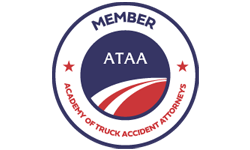California veterans who served at Marine Corps Base Camp Lejeune between 1953 and 1987 and later developed serious health problems may be owed compensation. Water contamination at two water-treatment plants that serviced the North Carolina base have been definitively linked to cancer, fertility problems, neurological disorders, and more.
The California Camp Lejeune water contamination lawyers at Frost Law Firm, PC know that the men and women who chose to serve our country deserved better than to be exposed to carcinogenic substances during their years of service. Although we cannot undo the harm that has already been caused, our attorneys are powerful advocates for injury victims and are prepared to fight for your right to potentially file a lawsuit against those who allowed the contamination to take place.
What Caused the Water Contamination at Camp Lejeune?
The Marine Corps first discovered the presence of volatile organic compounds (VOCs) in Camp Lejeune’s water in 1982. The contamination can be traced back to leaking fuel tanks on base and chemicals that were improperly disposed of by an off-base dry cleaner. Both the Tarawa Terrace and Hadnot Point water treatment plants that serviced the base were using the contaminated water.
It is believed that the contamination started as early as 1953, when the off-base dry cleaner ABC One-Hour Cleaners began operating. It was the primary polluter of the chemical perchloroethylene (PCE) via both improper disposal practices as well as spills that leached into ground water.
Trichloroethylene (TCE) was also found in the water that served Camp Lejeune, and sources of contamination included:
- Industrial site spills
- Underground storage tank leaks
- Drums in storage lots and dumps
The contaminated wells were shut down between Nov. 1984 and May 1985. The Tarawa Terrace water-treatment plant remained in operation until 1987, when it was permanently shut down.
Chemicals Found in Camp Lejeune’s Water
There were four main VOCs found to be contaminating Camp Lejeune’s drinking water:
- Perchloroethylene (PCE) – PCE is a man-made chemical that is used as the main solvent by dry cleaners in the United States. Despite its common usage, it is highly dangerous to humans and has been identified as a human carcinogen, neurotoxicant, and reproductive toxicant.
- Trichloroethylene (TCE) – Another man-made chemical, TCE is most commonly used in refrigerants and as a degreasing agent for metal. It is a known carcinogen that may also cause headaches, confusion, and other worrying symptoms upon exposure.
- Benzene – Ranking among the top 20 most common chemicals by production volume, benzene is used in plastics, synthetic fibers, lubricants, pesticides, and more. It is a known carcinogen that prevents cells in the human body from working correctly.
- Vinyl chloride (VC) – Primarily used to create polyvinyl chloride, VC can be found in pipes, packaging materials, cable coatings, and more. This chemical is a known carcinogen that causes multiple types of cancers in humans.
Exposure to any one of the above VOCs can lead to the development of adverse health conditions. Service members and their families who worked and lived at Camp Lejeune between 1953 and 1987 were exposed to multiple carcinogenic substances, often for months or years at a time, putting them at a high risk of developing cancer or other serious health problems.
Illnesses Caused by the Camp Lejeune Water Contamination
The impact of a carcinogenic substance will vary depending on when you were exposed as well as the method of exposure. For most people at Camp Lejeune, exposure occurred via the contaminated water by the following methods:
- Drinking
- Cooking
- Bathing or showering
While not everyone who was exposed to the toxic mixture of PCE, TCE, VC, and benzene will develop a related health problem, many will and already have. Marine members who dedicated their lives to serving the United States are currently suffering the ill-effects of such exposure, as are their families. The following illnesses have all been strongly linked to the contaminated water at Camp Lejeune:
- Aplastic anemia
- Birth defects
- Bladder cancer
- Brain cancer
- Breast cancer
- Cardiac defects
- Cervical cancer
- Choanal atresia
- End-stage renal disease
- Esophageal cancer
- Eye defects
- Fetal death
- Generalized hypersensitivity skin disorder
- Hodgkin’s disease
- Impaired immune system function
- Infertility
- Kidney cancer
- Leukemia
- Liver cancer
- Liver cirrhosis
- Low birth weight
- Lung cancer
- Miscarriage
- Multiple myeloma
- Neural tube defects
- Neurobehavioral deficits
- Neurological damage
- Non-Hodgkin’s lymphoma
- Oral cleft defects
- Ovarian cancer
- Parkinson’s disease
- Prostate cancer
- Rectal cancer
- Scleroderma
- Soft tissue cancers
Anyone who has developed one of the above health conditions after serving or living at Camp Lejeune between 1953 and 1987 may be entitled to financial compensation. The above is far from a comprehensive list though, so do not hesitate to reach out to a Camp Lejeune water contamination lawyer to explore your options for recovering compensation for your damages.
How Many People Were Exposed to the Contaminated Water?
The true number of how many people were exposed to contaminated water at Camp Lejeune is difficult to pin down, but health officials believe as many as one million people may have been put at unnecessary risk. This estimate includes anyone who spent at least 30 days at the base between 1953 and 1987. However, many Marine Corps members and their families were there for much longer, serving years at a base that was exposing them to carcinogenic substances from both water-treatment plants at:
- Base administration offices
- Unmarried service member barracks
- Enlisted family houses
- Recreational spaces
Additional exposure occurred at Naval Medical Center Camp Lejeune, which was serviced by the Hadnot Point water-treatment plant.
What Is the Camp Lejeune Justice Act of 2021?
In March 2021, the Honoring Our PACT Act was introduced to the House. Included in the Honoring Our PACT Act was a provision for the Camp Lejeune Justice Act, which allows U.S. Armed Forces members, veterans, and their families to sue if they were exposed to contaminated water at Camp Lejeune between Aug. 1, 1953 and Dec. 31, 1987, and suffered an adverse health condition as a result. Honoring Our PACT was passed on March 3, 2022.
The Camp Lejeune Justice Act further prevents the U.S. government from avoiding responsibility in such lawsuits by barring its ability to claim specified immunity. Frost Law Firm believes this act is an essential step toward honoring the promise that we as a country made to the men and women who chose to forego their own goals in order to serve the United States.
Who Qualifies for a Camp Lejeune Water Contamination Lawsuit?
Anyone who worked, lived at, or visited Camp Lejeune for a period of at least 30 days between 1953 and 1987 are believed to be at an elevated risk for developing cancer and other serious diseases. If, at the time, you were a member of the Marine Corps, a child, or were born there, and you later developed cancer or another serious health problem, you may qualify for compensation. The most effective way to do this is to file a lawsuit with the help of a Camp Lejeune water contamination lawyer.
You only have a limited time to act. All injury claims filed under the Camp Lejeune Justice Act will be consolidated and then heard in the U.S. District Court of the Eastern District of North Carolina. This includes claims made in all other states, including California. The deadline to file your lawsuit is two years from the passing of the Camp Lejeune Justice Act.
You may be able to file a lawsuit regardless of where you are currently stationed, or where you were stationed following your time at Camp Lejeune. For example, those who are currently serving or were previously stationed at Camp Pendleton here in California may still file a claim so long as they were at Camp Lejeune for a period of at least 30 days between 1953 and 1987.
Supporting Documents Necessary for Your Claim
You will need to prove that you were present at Camp Lejeune between 1953 and 1987 for a period of at least 30 days. Your Camp Lejeune water contamination lawyer can use some of the following documents to help you prove that you were there:
- Military service records
- Travel records
- Proof of residence in the barracks or family housing
You will also need to prove that you were harmed as a result of your time at Camp Lejeune. Your medical records and medical bills can help your attorney demonstrate the ways in which your life was affected by the exposure to contaminated water.
Compensation Available for Victims of Water Contamination
If you or a loved one developed cancer, a serious health condition, or were otherwise harmed by exposure to contaminated water at Camp Lejeune, you may be eligible for compensation that addresses:
- Medical bills
- Pain and suffering
- Lost income
- Reduced earning capacity
- Deformity
- Disability
- Psychological trauma
- Loss of enjoyment in life
- Loss of companionship or consortium
Securing compensation in a Camp Lejeune water contamination lawsuit will not require you to give up any other benefits, including VA disability benefits that you may already be receiving.
Will I Lose My VA Benefits?
The U.S. Department of Veterans Affairs currently provides benefits to veterans who were exposed to contaminated water at Camp Lejeune between Aug. 1953 and Dec. 1987. VA disability benefits are available to veterans, guardsmen, and reservists who separated from the military without a dishonorable discharge, and developed one or more of the following health conditions after serving at Camp Lejeune:
- Aplastic anemia
- Bladder cancer
- Kidney cancer
- Leukemia
- Liver cancer
- Myelodysplastic syndrome
- Multiple myeloma
- Non-Hodgkin’s lymphoma
- Parkinson’s disease
Although VA benefits provide compensatory payments and cover the cost of health care, it is often not enough to fully address the scope of the above illnesses. When you choose to file a California Camp Lejeune water contamination lawsuit, you can potentially secure additional compensation for your condition without risking your current VA disability benefits.
Frost Law Firm Is Here for Injured Veterans and Their Families
When California residents chose to serve their country and were stationed away from their homes, they expected the government to prioritize their health and well-being whenever possible. To be exposed to carcinogenic substances through contaminated water while stationed at a military base within the United States is a complete violation of that expectation.
Our Camp Lejeune water contamination lawyers strongly believe that you and your loved ones deserved better than that. If you served at Camp Lejeune between 1953 and 1987, and now you or one of your family members is now suffering from a serious illness or health condition, we can help. Contact us today to schedule your free, no-obligation case evaluation with an attorney who understands the unique pressures of being a veteran.



















